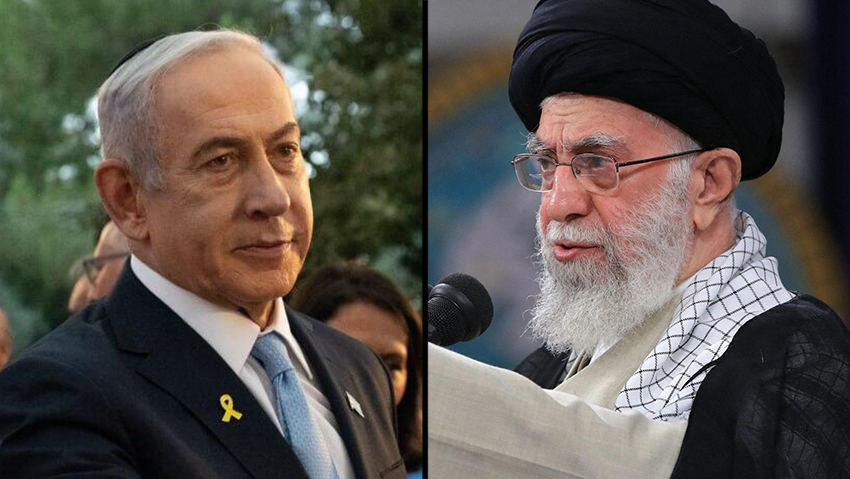Getting your Trinity Audio player ready...
Former U.S. President Donald Trump claimed Monday evening that an Iranian attack on Israel might occur overnight.
"Right now, I'm hearing there's going to be an attack tonight by Iran on Israel... No top-secret information or anything. But I hear that Israel is going to be attacked tonight," said the Republican presidential candidate during a conversation with YouTuber Adin Ross.
Trump: 'I hear that Israel is going to be attacked tonight'
(Video: from X)
Trump spared no criticism of President Joe Biden and his administration. "Getting along with the foreign leaders—if you're smart, our country is safe. If you're stupid, then that's a problem. We have stupid people there now, and those people are very dangerous," he said.
"If I were president, nobody would even be talking about that war, because it wouldn't happen, 100%," he asserted. Trump further commented, "Biden, he is just a vessel; he has no idea where the hell he is."
Despite Trump's remarks, officials in Jerusalem said there is uncertainty about the exact timing of any potential attack but acknowledged readiness for an immediate assault that could occur at any moment.
Israel has completed its defensive and offensive preparations after Prime Minister Benjamin Netanyahu held a security consultation on Sunday that extended past midnight. No additional situation assessments were held on Monday. "We don't really have an indication of when they will attack. Our assessment is that they will," a senior Israeli official noted.
Following recent distribution of satellite phones to Cabinet ministers, these phones are now being provided to senior advisors, indicating preparations for possible blackouts and disruptions in the cellular network. However, aside from this, no special instructions were given to ministers, and the security cabinet was not convened for a meeting.
1 View gallery


Prime Minister Benjamin Netanyahu and Iranian Supreme Leader Ali Khamenei
(Photo: Naama Greenbaum, AFP)
Meanwhile, IDF Chief of Staff Lt. Gen. Herzi Halevi conducted a situation assessment and approved plans for various scenarios amid escalating security tensions and the anticipated response from Iran and Hezbollah, the IDF said Monday.
Israel is heavily relying on U.S. support to build a coalition aimed at intercepting potential attacks. On Monday, U.S. Central Command (CENTCOM) Commander Gen. Michael Kurilla arrived in Israel for a situation assessment with Halevi and Defense Minister Yoav Gallant. This visit marks Gen. Kurilla's ninth trip to Israel since the conflict began, with his last visit occurring just last month. His mission is to ensure that the international coalition is well-coordinated and ready for any scenario.
Washington recognizes that intercepting and preventing attacks on Israel reduces the likelihood of a broader regional war. In an effort to prevent further escalation, the U.S. is actively communicating with its allies and Iran to urge restraint. The interception operation will be managed from the U.S. military command center in Qatar, which played a crucial role in the interceptions during the Iranian attack on April 13.
Iran's Foreign Ministry said Monday morning that Tehran does not seek regional escalation but added that the mullah regime believes Israel must be "punished" for the assassination of Hamas leader Ismail Haniyeh, which it attributes to Jerusalem.
The Iranian Foreign Ministry further stated that this is "necessary" to prevent further instability in the region. Iranian parliament member Mohammad Osmani said that Tehran "will not settle for less than Netanyahu's head."





